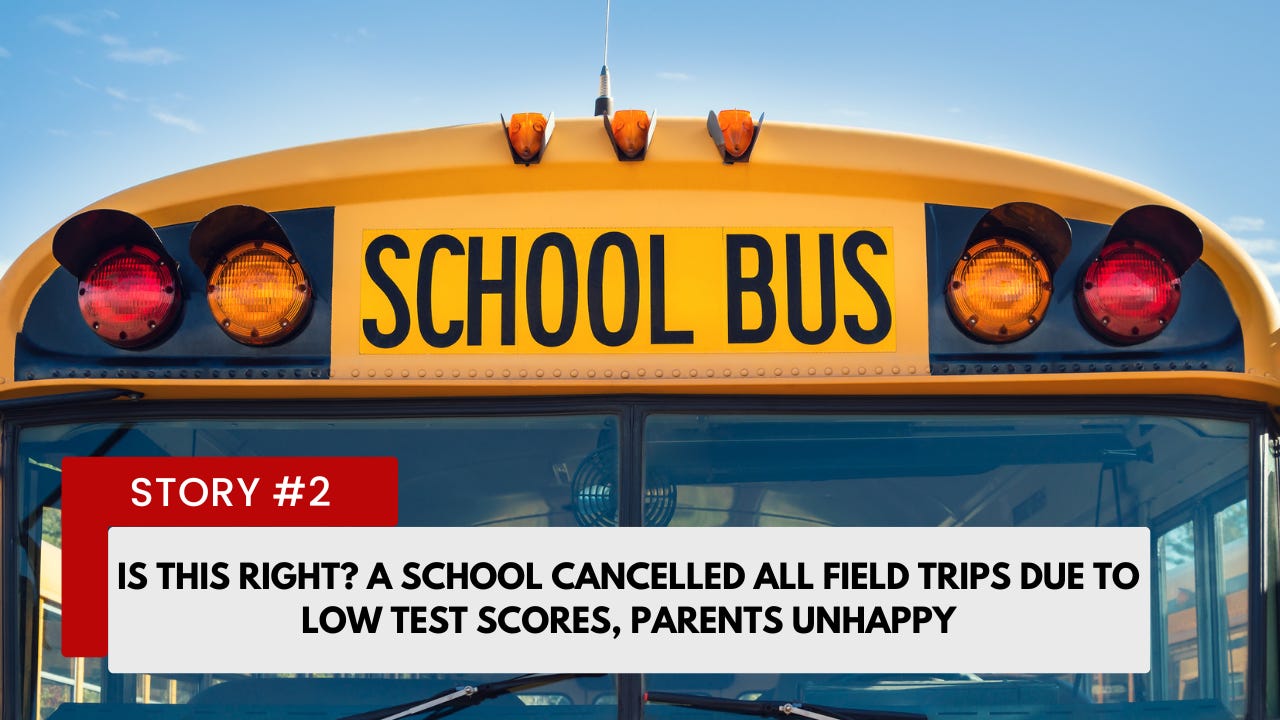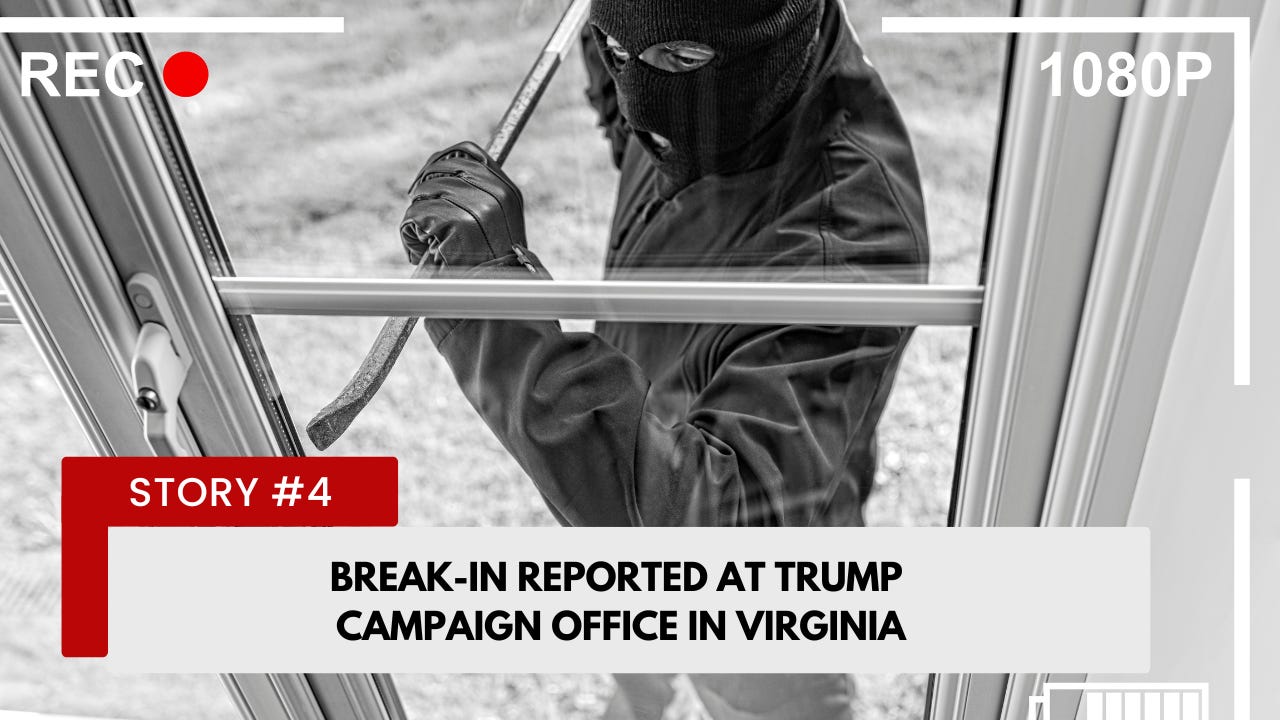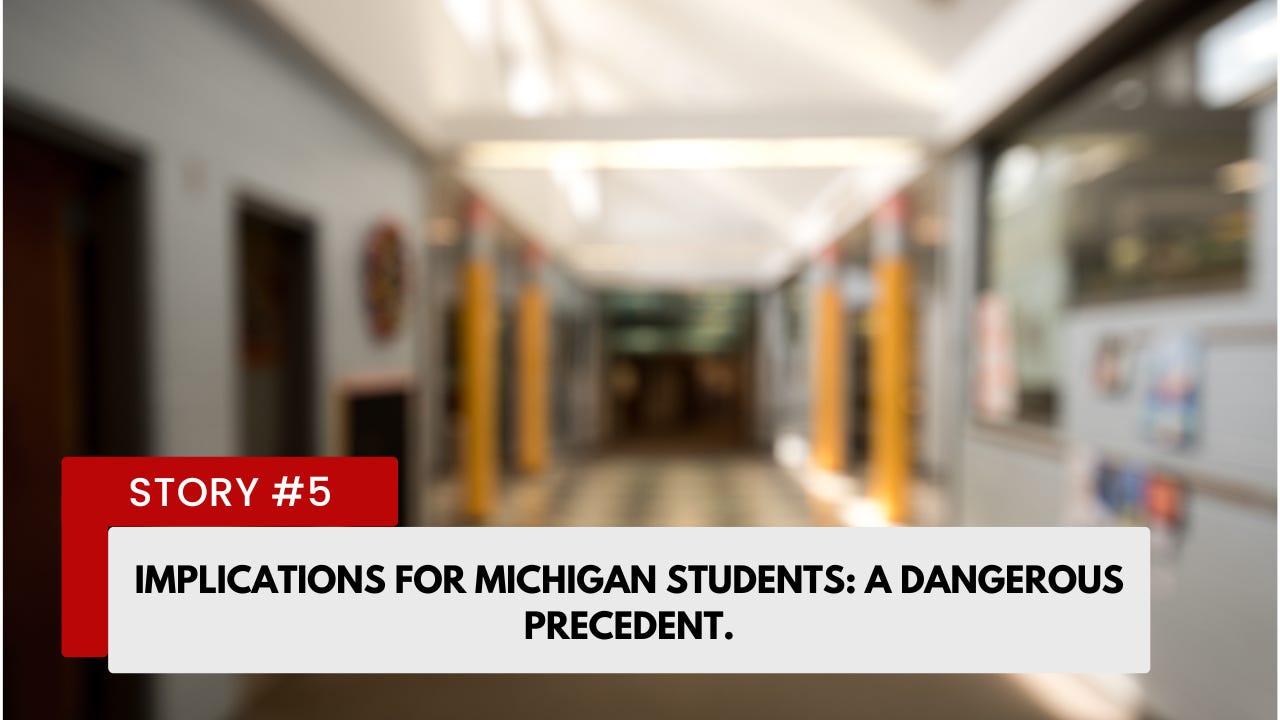Support my independent journalism by becoming a paid subscriber for only $5 a month. Help me to keep this going. I quit the mainstream media for all of you!


WASHINGTON D.C. - In a stunning display of hypocrisy and double standards, CBS News attacked former President Donald Trump when he announced his “no tax on tips” policy proposal in June and then suddenly became uncritical of the idea when Vice President Kamala Harris copied Trump on Saturday.
“Vice President Kamala Harris is rolling out a new policy position, saying she’ll fight to end taxes on tips for service and hospitality workers,” CBS announced in a Monday X post.
However, when Trump first announced the policy proposal in June, CBS adopted a strikingly different tone.
“Former President Donald Trump’s vow to stop taxing tips would cost the federal government up to $250 billion over 10 years, according to a nonpartisan watchdog group,” the news outlet said in a June 17 X post. Click here to read more.

FAYETTE COUNTY, Tenn. - After students scored poorly on math and reading tests, a school cancelled field trips for everybody. Parents think it's unfair and "a bad decision."
A school board member from Fayette County Schools made a surprise post on Facebook that said, "Due to low test scores, Dr. Hamlett has cancelled all field trips. Teachers have been instructed to concentrate on math and reading."
One parent, Ashley Turner, thinks the school needs to focus on improving their teaching rather than restricting field trips. Click here to read more.

KANAKEE COUNTY, IL - An Illinois County sheriff says a recent sexual assault of a minor allegedly at the hands of an illegal foreign national reveals the problems with Illinois being a “sanctuary state.”
Kankakee County Sheriff Mike Downey shared recently a 6-year-old girl was sexually assaulted. The suspect was referenced as a step father and arrested.
“As it turns out, during that time we received a detainer from Immigration and Customs Enforcement and that’s how we discovered that he was here illegally,” Downey told The Center Square. Last year, the suspect, Juan Alvizar, was cited separately for a seat belt violation and driving up to 25 miles an hour over the limit. He now faces charges of criminal sexual assault of a child, a Class X felony. Click here to read more.

ARLINGTON, VA - Authorities said Monday they are investigating a burglary at a Donald Trump campaign office in suburban Virginia, circulating surveillance video of a man inside the building with what appears to be a full backpack.
The break-in was reported late Sunday at the campaign office in Ashburn, according to the Loudoun County Sheriff’s Office.
The building, in a suburban office park about 30 miles west of downtown Washington, also serves as the headquarters of the Virginia 10th District Republican Committee.
“It is rare to have the office of any political campaign or party broken into,” Sheriff Mike Chapman said in the statement. “We are determined to identify the suspect, investigate why it happened, and determine what may have been taken as well as what may have been left behind.”
A spokesperson for the former president’s campaign did not immediately respond to a request for comment about the incident. Click here to read more.
LANSING, Mich (Michigan News Source) – In a ruling that has left many parents and advocates for student safety reeling, the Michigan Supreme Court recently decided that K-12 schools in the state are not liable under the Elliott-Larsen Civil Rights Act (ELCRA) for student-on-student sexual harassment.
This controversial decision, which overturns a prior Court of Appeals opinion, asserts that Michigan’s anti-discrimination law does not require school administrators to prevent or address sexually hostile environments in schools. Critics argue this leaves students vulnerable and unprotected, questioning the law’s effectiveness in safeguarding schoolchildren.
The case that led to this ruling involved a disturbing incident in the Alpena Public School District, where a fourth-grade girl, referred to as Jane Doe, was repeatedly sexually harassed by a fellow student. Despite the boy’s history of inappropriate behavior and temporary suspensions, the girl’s family felt that the school district failed to take sufficient action to protect their daughter. The family’s legal battle, which has spanned several years, was rooted in the belief that the school’s negligence created a “sexually hostile educational environment,” a claim that the Michigan Supreme Court has now rejected under ELCRA.
The court’s reasoning: A flawed interpretation?
The crux of the Michigan Supreme Court’s decision lies in its interpretation of the Elliott-Larsen Civil Rights Act. The court determined that because students are not employees, the protections against discrimination and harassment afforded by ELCRA do not extend to them in the same way they do to workers.
This narrow interpretation has sparked intense debate, with Justice Richard Bernstein dissenting fervently. Bernstein argued in his dissent that ELCRA should indeed provide a cause of action for students facing sexual harassment from their peers, pointing out that the law’s primary intent is to prevent discrimination and ensure a safe environment for all.
Bernstein’s dissent highlights a growing concern that the ruling effectively creates a legal loophole, where students can be subjected to harassment without meaningful recourse.

Implications for Michigan students: A dangerous precedent.
The implications of this ruling are profound and far-reaching. By absolving schools of responsibility under ELCRA, some say that the Michigan Supreme Court has set a dangerous precedent with schools now effectively shielded from liability when they fail to address student-on-student sexual harassment, leaving students like Jane Doe to fend for themselves.
Many argue that this decision not only undermines the intent of the Elliott-Larsen Civil Rights Act but also raises serious questions about the state’s commitment to protecting its children.
Parents, educators, and advocacy groups are now left to grapple with the fallout of this ruling. Without the protections afforded by ELCRA, students across Michigan are at risk of enduring harassment in an environment that should be safe and supportive. As the case returns to the Court of Appeals, there’s widespread hope for a reversal that will prioritize student safety over legal technicalities. Click here to read more.




















